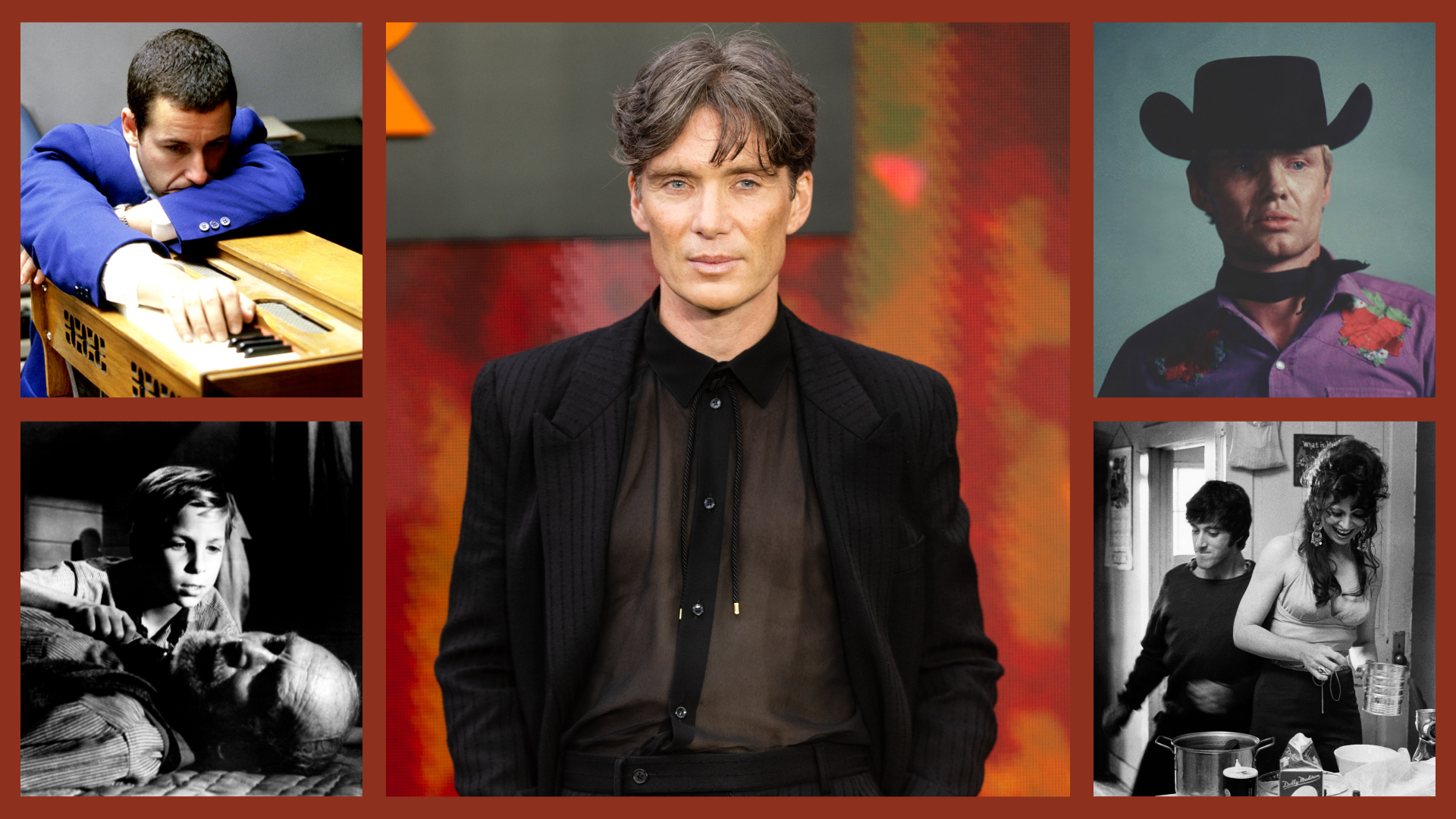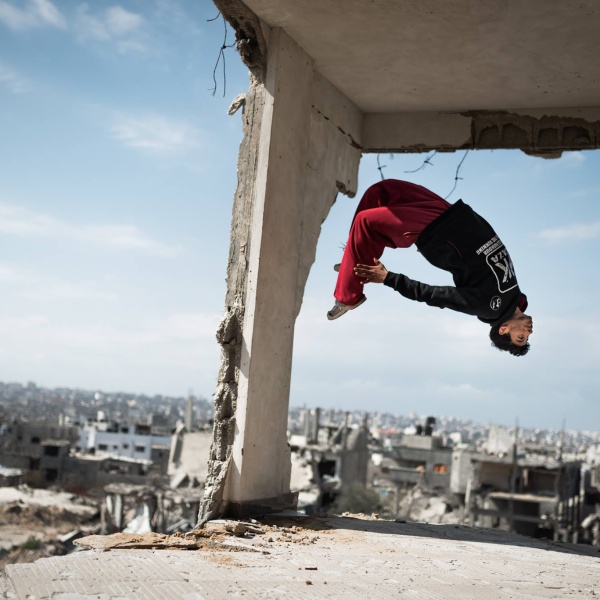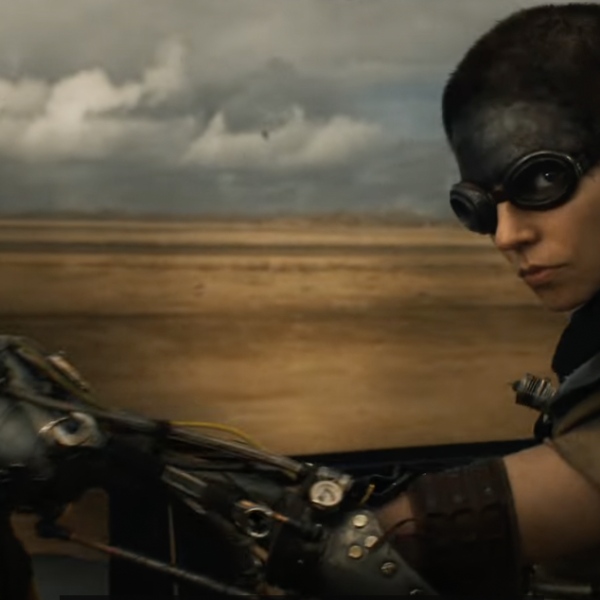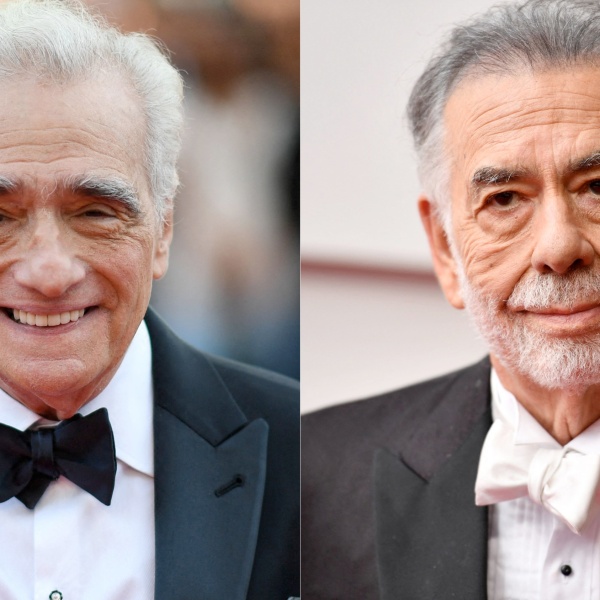For most of his young life, Cillian Murphy wanted to be a musician. Strumming away on his guitar and hammering on piano keys, the eventual “Oppenheimer” star wouldn’t shift his focus to acting until his early twenties. Murphy gained a larger following in film and on TV than from theater, although he has appeared on stage throughout his career and as recently as 2019.
The Irish actor frequently enjoys roles showcasing his live performance skills and musical talents; see “Disco Pigs,” “Watching the Detectives,” and “Breakfast on Pluto.” Still, the transition to acting initially left Murphy with a bit of imposter syndrome, uncertain that he would ever reach the stardom he has today.
“Because I never trained as an actor, because I wanted to be a musician, I’ve always felt slightly like a bit of an interloper,” Murphy said to Deadline.
If there’s one person who would disagree with the idea of Murphy as an outsider to the movie business it would be his long-term collaborator Christopher Nolan, who has cast Murphy in six of his films. The “Oppenheimer” actor explains that Nolan gave him confidence as a young performer, allowing him to keep calm and trust his instincts while acting.
“We’ve managed to work together all this time and I consider him one of the great directors of our time and a master filmmaker,” Murphy said, also to Deadline.
A cinephile himself, Murphy often revisits his favorite films — comparing all-time memorable performances to his own in hopes of rising to the level of acting exhibited by the likes of Stephen Rea or Adam Sandler. Read on for a list of Murphy’s favorite movies in no particular order.
Also check out IndieWire’s guide to Christopher Nolan’s Favorite Movies.
-
“The Butcher Boy” (1998)

Image Credit: ©Warner Bros/Courtesy Everett Collection Murphy still remembers the spontaneous round of applause “The Butcher Boy” received at an Irish cinema as the movie concluded. Directed by Neil Jordan, a filmmaker Murphy would go on to work with in “Breakfast on Pluto,” the film so captivated the aspiring actor that he bought another ticket and rewatched it immediately after leaving his seat. The dark 1960s storyline of an abused and neglected 12-year-old boy who succumbs to his violent fantasies — after he is left to fend for himself following the death of his alcoholic father and medical confinement of his suicidal mother — is an account that has stuck with Murphy throughout his career.
“It’s the tone of the movie that makes it so wonderful,” Murphy said to Deadline. “It’s really heightened and then all of a sudden violence and tragedy hits you out of nowhere and spins you on an emotional axis.”
-
“Star Wars” (1977)

Image Credit: Courtesy Everett Collection It’s never a surprise when “Star Wars” is on a list of favorite movies, however dressing up as Han Solo for birthday parties (yes birthday parties, not Halloween) is the epitome of a true super fan. The unique personality of each character and how they interact and bond with each other is a reason that Murphy sets it aside from most mainstream films, noting that he cares more about characters and less about the plot of a movie.
“I remember being completely transfixed by it,” Murphy said to Deadline, recalling the action figures and other “Star Wars” toys he played with as a kid. “It’s always been the characters for me.”
-
“Punch-Drunk Love” (2002)

Image Credit: ©Columbia Pictures/Courtesy Everett Collection Although it wasn’t as successful in box office sales as it was with critics, “Punch-Drunk Love” is a movie that Murphy frequently revisits and finds new reason to appreciate the more he watches. The romantic-comedy stars one of his favorite actors, the late Phillip Seymour Hoffman, who plays the antagonist: a mattress store owner and supervisor of a phone-sex hotline, which protagonist Adam Sandler frequently dials to cope with loneliness. The story follows Sandler’s character’s winding road to companionship with one of his seven sister’s co-workers. The inspiration Murphy drew from the film made him question his abilities as an actor.
“That really made me sit up and think, ‘I wonder can I ever be as compelling or as interesting or as unique or as different as that film is?’” Murphy said to Deadline. “Great movies reveal more each time you watch them.”
-
“Scarecrow” (1973)

Image Credit: Courtesy Everett Collection After all the preferred horror movies had been cleaned out from a video rental store on Halloween, Murphy and his brother went with the recommendation of the clerk: Jerry Schatzberg’s “Scarecrow,” featuring one of Al Pacino’s earliest performances. On the advice that it would “scare the shit” out of them, the two boys brought it home and watched in awe of the works of Pacino and Gene Hackman. Two drifters meet while hitch-hiking in California and form a tight bond that carries them across the country with the aspiration to open a car wash once they reach Pennsylvania. Their travels land them in countless unfavorable situations, including fist fights and getting arrested. Murphy loves the film so much he gives it to colleagues who have never seen it.
“It made a huge impression on me at that age and I was really struck by the performances,” Murphy said to Deadline.
-
“La Haine” (1995)

Image Credit: Getty Images for Universal Pictu A French film noir, “La Haine” follows three poor immigrant friends living in the slums of a Paris neighborhood and their aggression and anger stemming from the arrest and hospitalization of their buddy Abdel in the aftermath of a riot. Translated to “The Hate,” the movie chronicles violent encounters of the young men after the riots overtake a police station and a gun is stolen with the intention of using it on officers if Abdel doesn’t recover. “La Haine” director, Mathieu Kassovitz, also makes a feature in the film as a neonazi skinhead who gets smacked around by the boys and is nearly shot. Murphy notes the film’s relevance today, reflecting on the recent unrest in Paris.
“That movie just hasn’t aged,” Murphy said in an interview with Letterboxd. “It’s a masterpiece.”
-
“Apocalypse Now” (1979)

Image Credit: Courtesy Everett Collection A movie that he turned his kids on to, according to a Letterboxd interview, “Apocalypse Now” is loved by the Murphys if not for its all-star cast then possibly for the suspenseful cinematography of Francis Ford Coppola. Set in the middle of the Vietnam War, the film follows Captain Willard’s (Martin Sheen) mission to “terminate” the command of Colonel Kurtz (Marlon Brando): a rogue soldier who, without the command of his superiors, leads a guerilla warfare movement in Cambodia. Shot in the Philippines, the production was delayed from the initially-planned five months to more than a year, resulting from poor weather that destroyed sets and an overweight and unprepared Brando.
-
“The Big Lebowski” (1998)

Image Credit: ©GramercyPictures/Courtesy Everett Collection A movie with a cult following that gave rise to a milky cocktail sipped by Jeff Bridges’ pajama-clad stoner character “The Dude,” “The Big Lebowski” helped Murphy bond with his family according to a Letterboxd interview.
In an interview with The Atlantic, the filmmakers note the loosely inspired work of Raymond Bridges’ 1939 novel “The Big Sleep” where a dying millionaire hires a private investigator to deal with his daughter’s blackmailer. Echoing Murphy’s message that characters and other factors come before a film’s setting, Joel Coen noted the plot to be “secondary to other things.”
-
“The Night of the Hunter” (1955)

Image Credit: Courtesy Everett Collection A film noir that initially didn’t receive the praise it deserved, “The Night of the Hunter” draws from the true story of Harry Powers: a con artist and serial killer who was hanged in 1932. The on-screen killer Harry Powell (Robert Mitchum) lures his victims by posing as a self-proclaimed reverend who preys on Shelly Winters (Willa Harper), the widow of his former cellmate after her late husband mentioned the stashed winnings of a bank heist. The AFI acknowledges the work of actor-turned-director Charles Laughton as one of the greatest thrillers of all time which Murphy would agree with, calling it a “masterpiece visually” according to FarOut.
-
“Mean Streets” (1973)

Image Credit: Courtesy Everett Collection The first time Robert De Niro and Martin Scorsese collaborated was on the filmmaker’s third feature, “Mean Streets,” which paved the way for a long-lasting connection that would prove De Niro a go-to lead for ten of the director’s films. Set in the Little Italy neighborhood of New York City, “Mean Streets” honed Scorsese’s mafioso movie abilities that would set the tone for a prominent career making edge-of-your-seat crime movies. With experience leading an organized-crime crew as Tommy Shelby in “Peaky Blinders,” it’s no surprise that the Birmingham boss drew from the work of Scorsese’s on-screen gangsters.
“Extraordinary energy and performances from De Niro and Keitel, with Scorsese beginning to cast a spell over filmmaking in the 1970s,” Murphy said in a FarOut article.
-
“Midnight Cowboy” (1969)

Image Credit: Courtesy Everett Collection Another favorite of Murphy’s that he shared with his kids, according to Letterboxd, “Midnight Cowboy” features two Academy Award-winning actors: Jon Voight as Joe Buck and Dustin Hoffman as “Ratso” Rizzo. The film was the only X-rated movie to win Best Picture before it was re-categorized to an “R” rating shortly after. Buck is a queer cowboy who travels via bus from Texas to New York. Rizzo is a con man who introduces Buck to a pimp and other shady characters, helping the Texan earn money as a gigolo. Although it was categorized as an “X” movie at the time, “Midnight Cowboy” is a bit more tame than some films released in the following decades.




